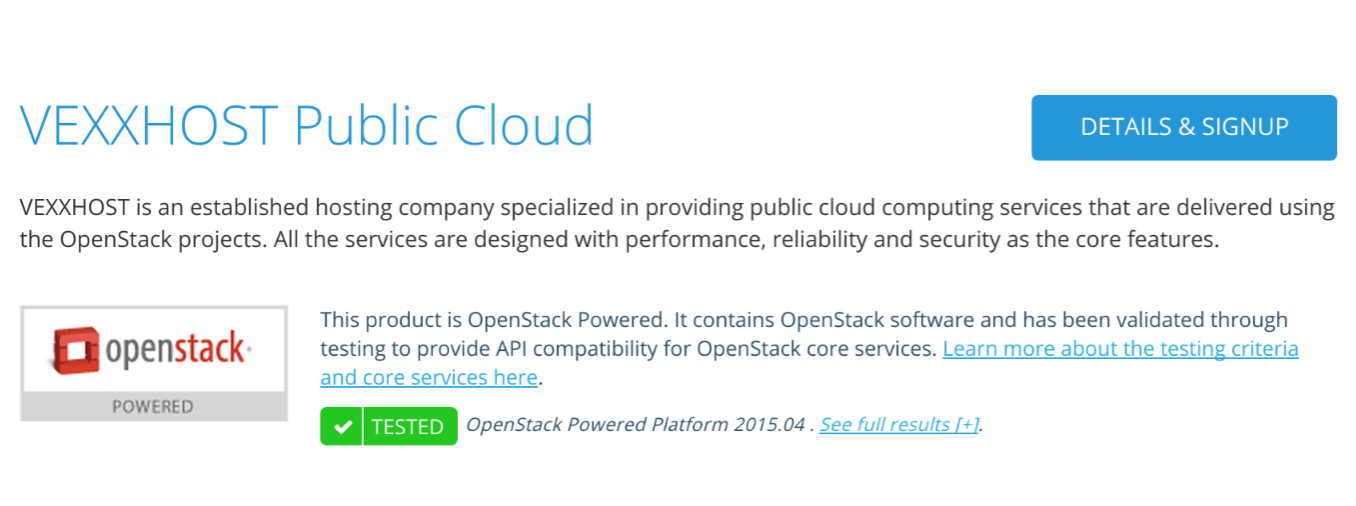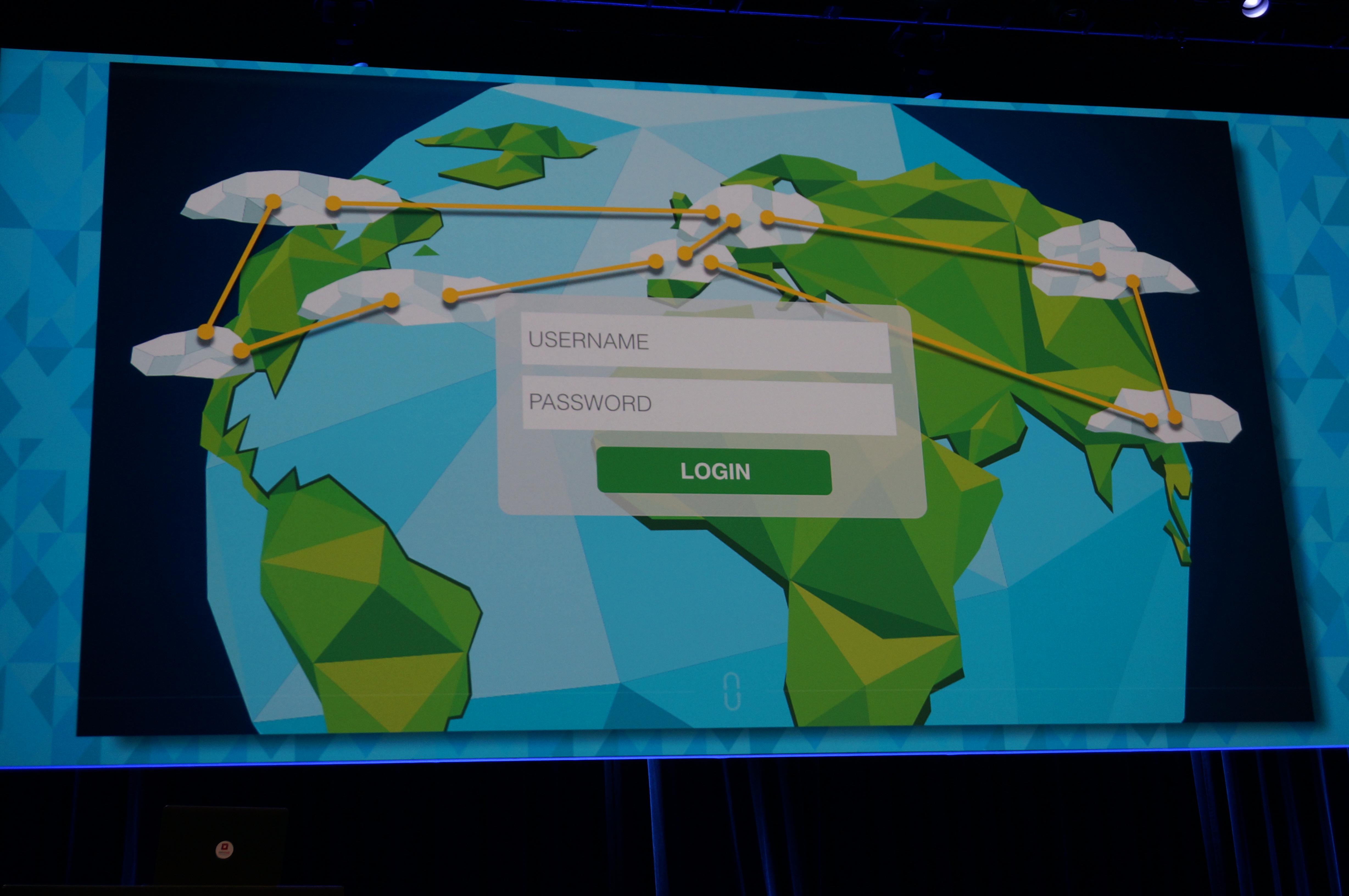OpenStack, the open source cloud computing platform originally launched by RackSpace and NASA in 2010, is getting a few new features today that aim to make using OpenStack across different clouds and vendors more straightforward.
Every six months, the OpenStack community meets to discuss the state of the project and to plan ahead for the next bi-annual release. This spring’s OpenStack Summit is currently under way in Vancouver, Canada, where OpenStack executive director Jonathan Bryce announced these new initiatives at this morning’s keynote.
The first project is a new certification program that introduces a set of interoperability testing requirements for products that want to be able to call themselves “OpenStack Powered.” Going forward, every project that wants to be included in the OpenStack Marketplace will have to pass these tests (there will be a transition period for older projects, too).

The “OpenStack Powered” brand will be available for public clouds, hosted private clouds, distributions and appliances that pass the organization’s tests. So far, 14 projects have already participated in this project. They include the likes of Bright Computing, IBM, HP, Rackspace and VMWare, as well as distributions like Red Hat, SUSE and Ubuntu.
As OpenStack COO Mark Collier noted when I talked to him ahead of the Summit, the current Marketplace mostly focuses on providing potential users with basic facts about a product (what APIs it exposes, what OpenStack versions it supports, etc.). “This takes it to the next level,” he said.
This project is a clear indication of how much the OpenStack ecosystem has grown over the last few years. With only a few players on the market, there wasn’t much need for this kind of certification program, but now that the number of vendors who provide some kind of service for the project continues to increase, it’s becoming more important to ensure that users don’t get locked into a single vendor. That, after all, would be very much against the philosophy of the project.

On a somewhat similar note, the project also today announced that over 32 vendors now support OpenStack’s distributed identity feature. This has been a long time in the making and parts of this new service made their way into the previous OpenStack already, but it’s only now – and with the recent Kilo release of the project — that this is becoming a reality.
The idea here is that you’ll be able to use your login from your “home” OpenStack cloud to spin up instances on other clouds as well. In previous releases, OpenStack clouds could accept your identity from third-party services. Now your home cloud can also be an identity provider for you, which should make it much easier to tie together public and private clouds for hybrid OpenStack deployments.
Collier tells me that one feature the service does not yet include is support for policies. Going forward, the service will include these so you can make sure that you spin up machines on the right cloud for your project. Maybe you want to emphasize price, for example, or latency is more important to you than saving a few bucks. Right now, you still have to make these decisions by hand.
Some of the providers who already support federated identities include Cisco, DreamHost, EasyStack, HP, IBM, Internap, Mirantis, Suse, Rackspace, Ubuntu, Vexxhost and others.
“OpenStack cloud providers are delivering on the promise of a global network of clouds that app developers can leverage depending on their needs,” said Bryce today. “Today, the OpenStack community is putting app developers in the driver’s seat, giving them the power to choose the price, performance and geography that best suit the needs of their apps, matching workloads to the best resources. No other cloud platform promises what OpenStack can deliver.”
